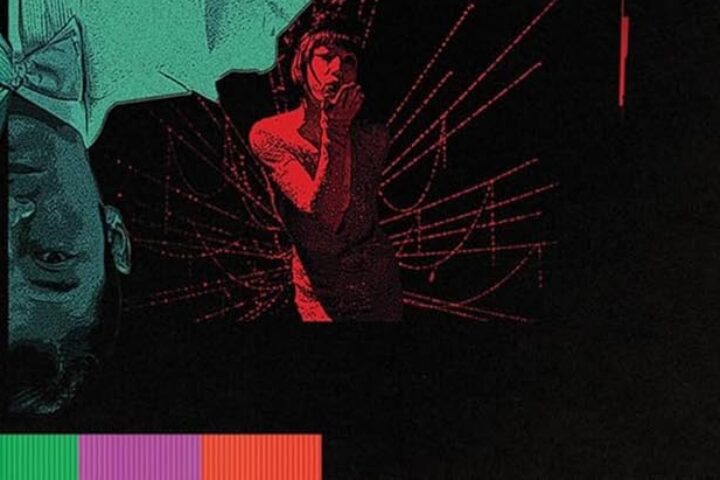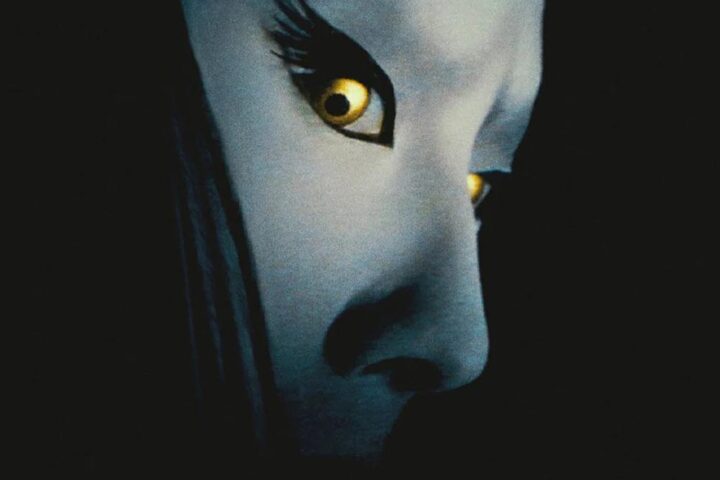With After Life, Kore-eda Hirokazu extends his manifestly unshowy technique and keen observational eye into the metaphysical realm. The film opens with an overexposed shot of a small office building that’s revealed to be a waystation between our corporeal world and the great beyond. It’s there that the recently departed are asked to pick a single memory from their lives to be put on film, so they can re-experience it for eternity after they enter the next realm. The most amusing aspect of the film is its tacit suggestion that order is so ingrained into Japan’s culture that it’s a logical inevitability that there would be a quasi-purgatory with a bureaucratic framework that allows the Japanese to calmly shape their eternity.
Interspersed with clips of people roaming the idyllic grounds around the building attempting to figure out their most cherished memory are moments of the dead being interviewed by counselors to further help them suss out the defining moments of their lives. These scenes evince a documentary feel, catching the actors in unguarded poses that further demystify the fantastical setting. The interviews also show how common it is for unhappy or at least emotionally inscrutable memories to stand out just as much as the happiest ones.
All of this obviously doubles as a larger metaphor for filmmaking itself, which is hammered home in scenes of the counselors filming each person’s chosen memories. The revelation that the counselors themselves stay at this station because they could never decide on their own favorite memories may be understood as Kore-eda’s way of representing the restless imagination of the artist who refuses to be pinned down by, say, one genre or style.
Given his gentle, unobtrusive style, Kore-eda is often compared, not unfairly, to Yasujirô Ozu, but After Life also demonstrates how sharply their approaches diverge from one another. Both share a general lack of interest in explosive melodrama, often homing in on people’s most muted emotional responses to even the most heart-wrenching of tragedies. Yet where Ozu’s brand of minimalism was so extreme that it crossed into the avant-garde, in some respects prefiguring the modernism of Michelangelo Antonioni in his use of objects and architecture as reflections of the soul of his characters and society itself, Kore-eda’s best work lends realism to even his most novelistic narrative turns. Ozu makes the quotidian radical, but After Life evinces Kore-eda’s uncanny ability of finding the relatable in the profound.
Image/Sound
This new 2K restoration, supervised by Kore-eda Hirokazu, maximizes the detail of After Life’s naturalistic lighting and color tones. Black levels are stable in the film’s many darker scenes, and the grain distribution of the 16mm photography is true to the source without sacrificing texture or color depth. The end of After Life, which was shot in 35mm, looks even stronger, with the format’s sharper image and higher color fidelity reflected in the transfer. The mono soundtrack is consistently clear, with most of the audio consisting of dialogue with only a few moments of music and ambient sound, which is mixed subtly around people talking.
Extras
In her commentary track, film scholar and Kore-eda biographer Linda C. Ehrlich explores every aspect of After Life, from its theme of memory to its use of non-professional actors, as well as Kore-eda’s larger body of work. She’s particularly informative on the recurring auteurial tics of Kore-eda’s ostensibly hands-off style. Criterion also includes newly conducted interviews with Kore-eda and cinematographers Sukita Masayoshi and Yamazaki Yutaka, as well as a few deleted scenes. The disc also comes with a booklet essay by author Viet Thanh Nguyen, who reflects, half-analytically and half-personally, on his memories of the film.
Overall
Kore-eda Hirokazu’s understated masterpiece is one of the great films about death as well as filmmaking, and Criterion does justice to its surface pleasures and deeper truths.
Since 2001, we've brought you uncompromising, candid takes on the world of film, music, television, video games, theater, and more. Independently owned and operated publications like Slant have been hit hard in recent years, but we’re committed to keeping our content free and accessible—meaning no paywalls or fees.
If you like what we do, please consider subscribing to our Patreon or making a donation.




